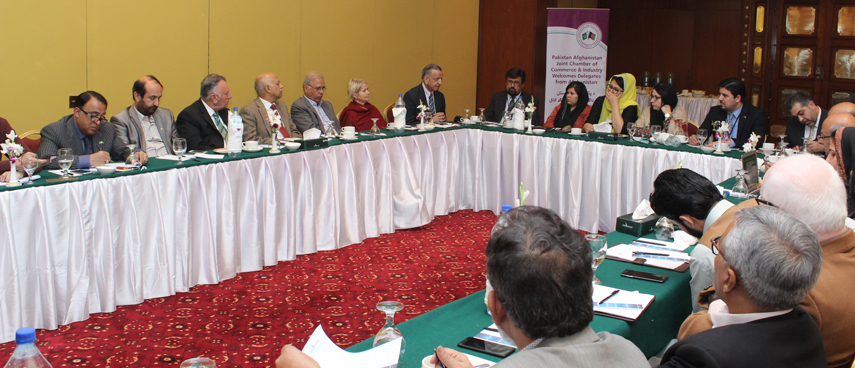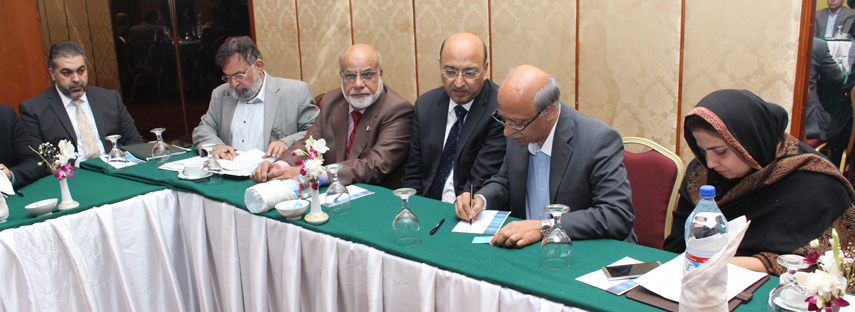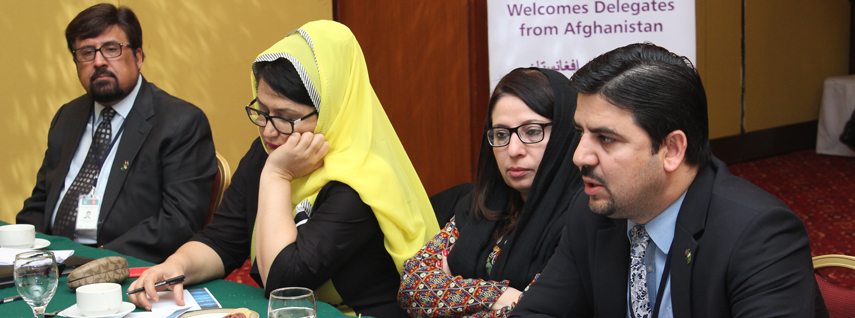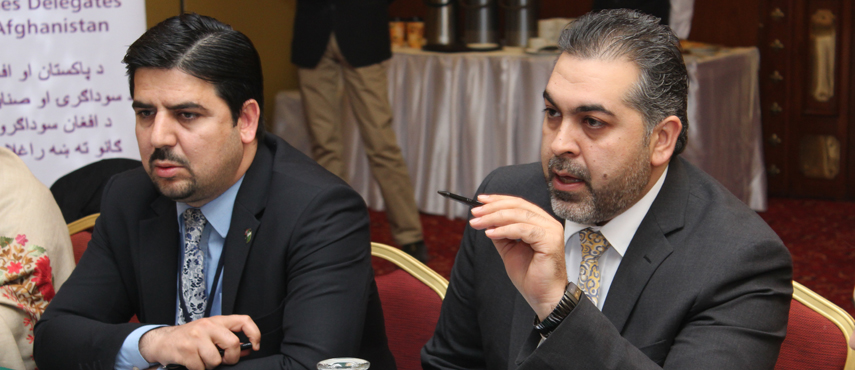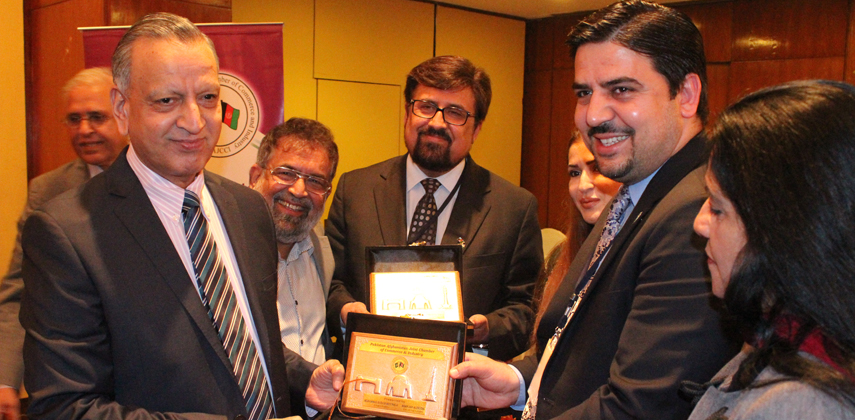An 11-member delegation of the Beyond Boundaries II – Pakistan Afghanistan Joint Committee_ comprising senior experts and officials both from Pakistan and Afghanistan had a meeting with the Board of the Pakistan Afghanistan Joint Chamber of Commerce and Industry (PAJCCI) on 10 January, 2017, at Avari Hotel, hosted by the PAJCCI. The discussions centered on the Phase II of the “Beyond Boundaries Project” and to boost and improve Pak-Afghan transit and bilateral trade.
The PAJCCI vowed to boost ties between the two countries and the region by throwing its weight behind the ambitious CRSS-WPSO track 1.5/II “Beyond Boundaries Project – Phase II.”
The PAJCCI had initiated several activities to help re-establish the confidence building measures between the business communities, general public and governments of the two countries. The Afghan delegation was led by Mr. Khalid Pashtoon, Member of Afghan Parliament, while Pakistani side was led by Dr. Shoaib Suddle, former IGP and Federal Tax Ombudsman.
Junaid Makda, Director of PAJCCI, briefed the delegations by highlighting the achievements of PAJCCI in a short span of time for strengthening the business across the border. He enlisted several initiatives taken that have formally aided policy making and arbitration amongst the private sector of both the countries and nourish regional integration for mutual benefits.
The director highlighted tariff rationalization and development of export house as dire need of time. Khalid Pashtoon encouraged the PAJCCI to voice the mutual concerns for amicable resolution. He added that Afghan businesses were compelled to conduct business with Iran as facilitation from Pakistan was compromised. Being from Kandahar, he highlighted the problems faced at Chaman-Kandahar border for transit trade highlighting Karachi port duty, clearance delays, cross border certification to release insurance guarantees, and tracking devices as some of the reasons, and since mostly this transit trade consists cherishable items, because of time constrain they get destroyed because of such delays.
Mozammil Shinwari, former Deputy Minister of Ministry of Trade and Commerce, Afghanistan, pointed major irritants to the transit trade. He said due to official bottlenecks, transit trade between the two countries had declined drastically from 65 to 27 percent. He informed “I had negotiated the Afghanistan Pakistan Transit Trade Agreement (APTTA) and it took one and half year to come into being. We also decided then to join hands with the private sector. In 2009-10, 70% of transit trade was coming through Pakistan, which has now dropped to 27%”, why this decline? He remarked. He said transit trade from $2.5 million has dropped down to $1.5 million; the reason being because of certain bottlenecks, now the Afghan traders are inclined to do transit trade through Iran; which has increased for $ 800-900 million to $ 1.5 billion. He was of the opinion that if the problems are resolved, Karachi remains the best option for Afghan traders for transit trade. He noted that we want to continue transit trade through Pakistan because this route has been used for hundreds of years. He added that Karachi was the most economical route for transit trade for Afghanistan; however, Iran’s facilitation to Afghan businessmen is pulling the business away.
Acknowledging PAJCCI’s role in strengthening bilateral trade, Shoaib Suddle reiterated that further improvements may be brought and the mutual trade must flourish, noting: “trade is not connected to security, so trade should not suffer on account of security factors”. He said the Pakistan and Afghanistan both should come up with solutions to make process simpler by introducing system check and balance , proper documentation, and by removing irritants for unnecessary delays. He agreed that there were many problems between both the countries but both the governments should take steps to improve trade relationship for the greater good.
Lastly, Shazia Marri, Member of National Assembly, appreciated the PAJCCI’s contribution and commended the role of this forum in the betterment of Pakistan, Afghanistan transit and bilateral trade.
The points that emerged from the PAJCCI and PAJC delegation meeting are: The governments of Pakistan and Afghanistan should expedite convening the meetings of Joint Economic Commission (JEC) and Afghanistan Pakistan Transit Trade Coordinating Authority (APTTCA). As agreed between the two governments at the fifth APTTCA meeting, the Afghanistan Pakistan Transit Trade Agreement (APTTA) may also be revised soon and both the governments may help in creating an enabling environment for traders from both sides to promote bilateral trade.

